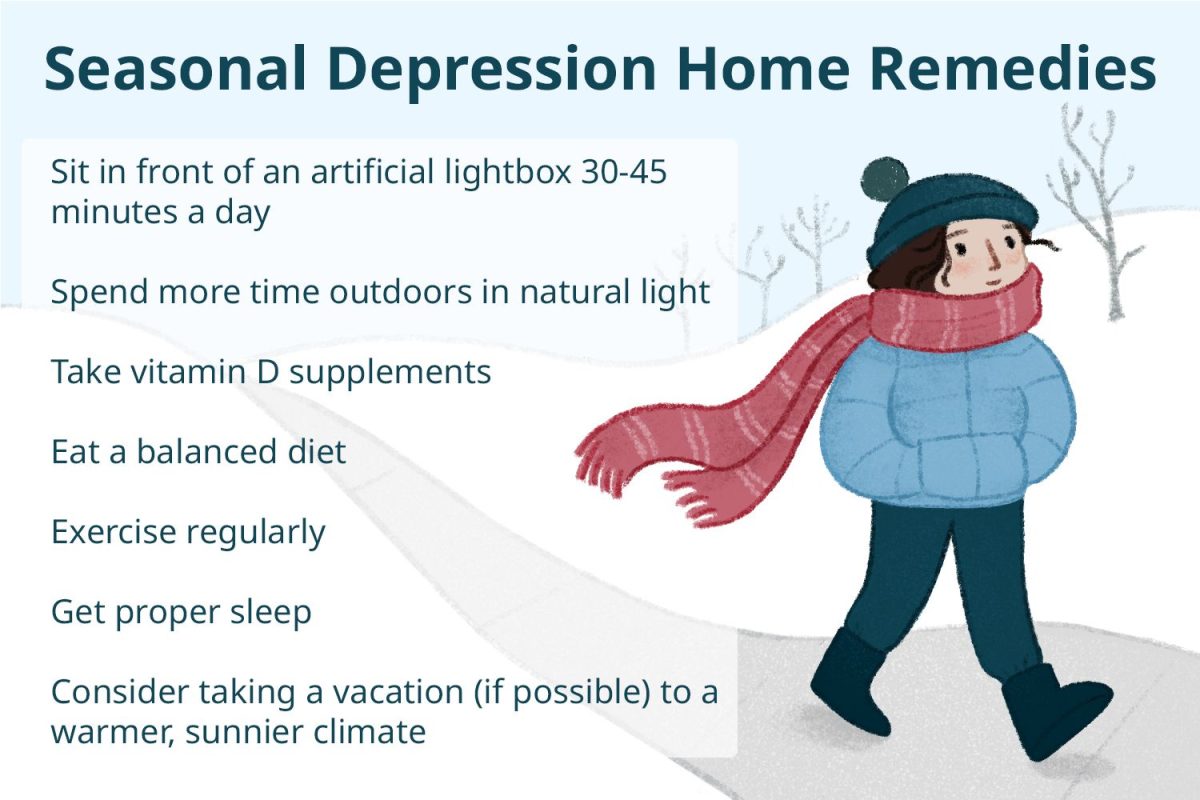Dark mornings, chilly weather, and endless gray skies: the winter season is a time of change, but for some, it also marks the arrival of Seasonal Affective Disorder (SAD). This form of depression, triggered by seasonal shifts, impacts millions of people each year, making the cold months feel even heavier.
SAD, often referred to as seasonal depression, is a form of depression linked to the change in seasons, most commonly starting in late fall and continuing through winter. The American Psychiatric Association reports that about 5% of the U.S. population experiences SAD annually, and its effects can be especially challenging for teenagers balancing school, extracurriculars, and social pressures.
“When it starts to get darker earlier, I feel like I have way less energy for anything,” Plainfield North High School sophomore Nadia Arellano said. “Even hanging out with friends feels like it takes too much effort sometimes.”
The cause of SAD is largely linked to a lack of sunlight during fall and winter. Less sunlight can throw off the body’s internal clock, lower serotonin levels, and increase melatonin production, leaving people feeling fatigued, irritable, or unable to concentrate.
“During the colder months, I always feel like my sleep schedule is all over the place,” senior Ari Morrison said. “It’s like I can’t get enough rest, no matter how much I sleep.”
While SAD can feel heavy, there are ways to manage its symptoms and find moments of light in the darker months. Clinical psychologist Gloria Petruzzelli recommends spending time outside during daylight hours, even on cloudy days, as natural light helps regulate the body’s internal rhythms.
If feelings of sadness or fatigue last for weeks and interfere with daily life, it’s important to seek professional help. School counselors, therapists, and crisis hotlines like the Suicide and Crisis Lifeline (dial 988) are available to provide support.
Though the winter season may seem long and dark, brighter days are ahead. For those struggling with SAD, small steps like spending time outdoors, staying active, and connecting with others can make a difference.
“Even though winter can feel endless,” Morrison said, “there’s always something to look forward to, even if it’s just longer days ahead.”



